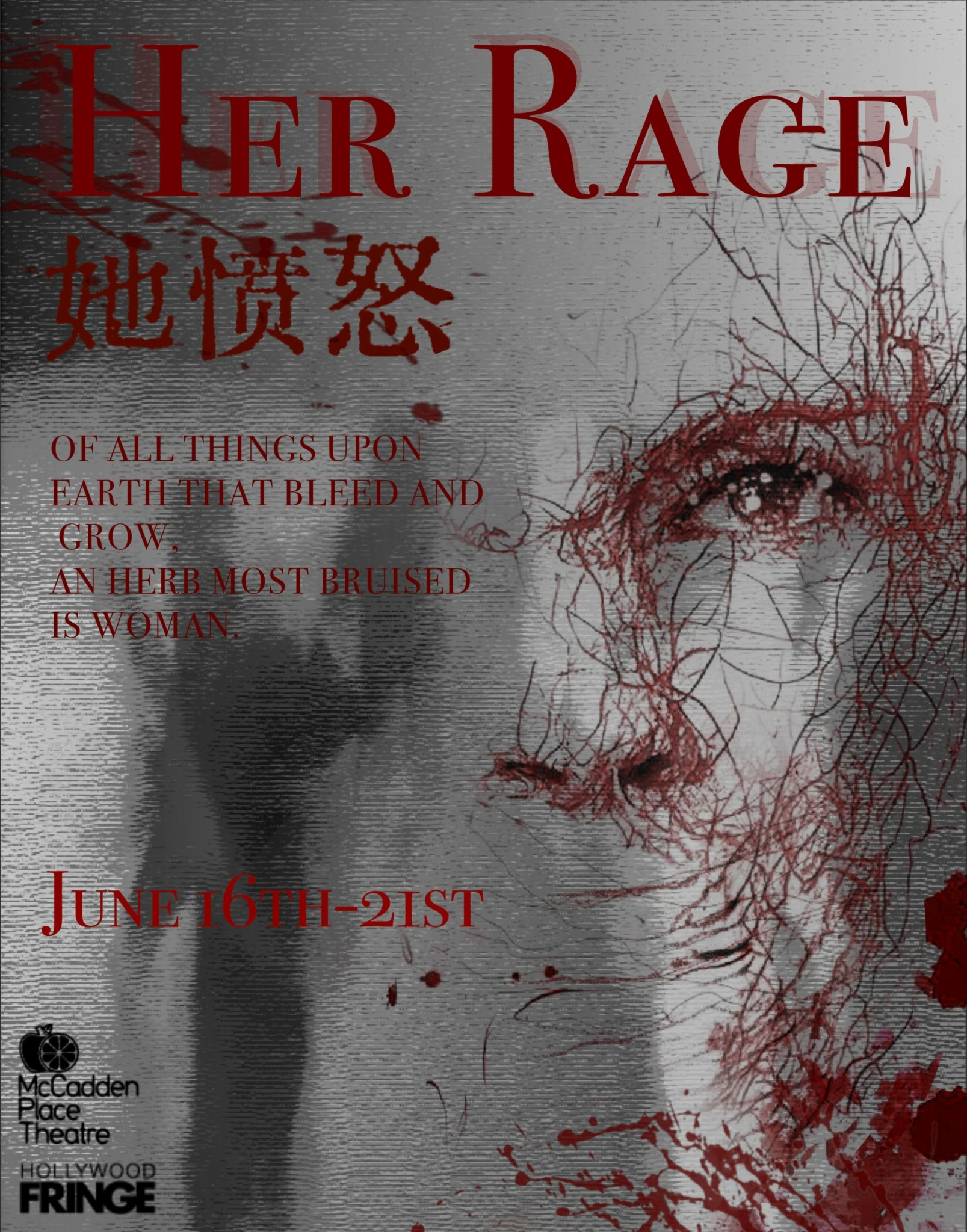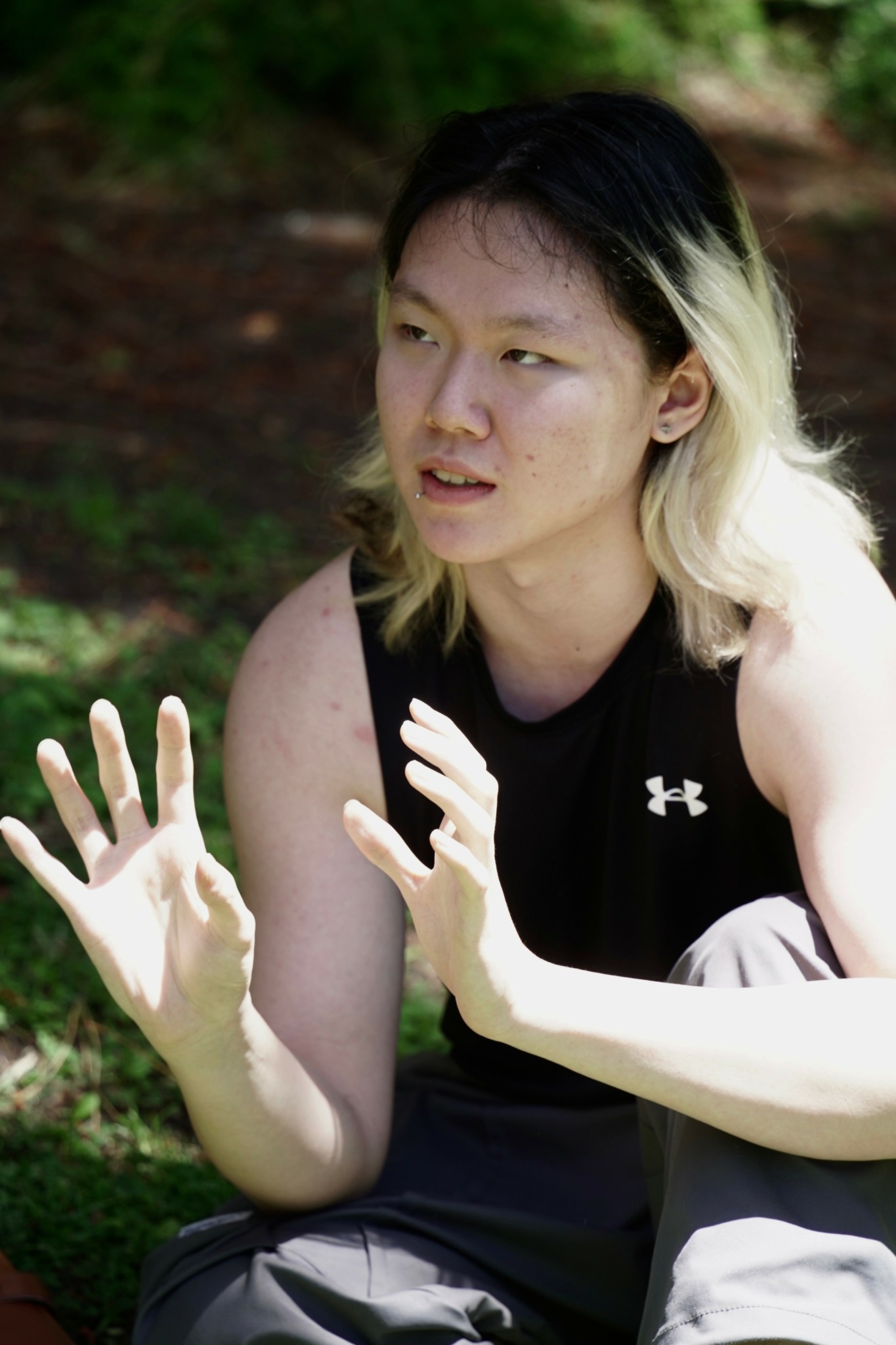Alright – so today we’ve got the honor of introducing you to Yuwen Yang. We think you’ll enjoy our conversation, we’ve shared it below.
Yuwen, appreciate you joining us today. Can you talk to us about a project that’s meant a lot to you?
The most meaningful project I’ve worked on is the one I’m currently creating: a one-hour play titled Her Rage, which will premiere at the Hollywood Fringe Festival. The story centers on a woman from Taiwan who is accused of mariticide after enduring years of abuse from her husband. Through this narrative, the play explores themes of immigration, domestic violence, and feminism. What makes this project especially powerful is that many members of our company are immigrant women themselves, and their lived experiences have deeply shape the storytelling of the play. This is the story that I feel urgent to tell especially in current times, when immigrants are under fear in this country.
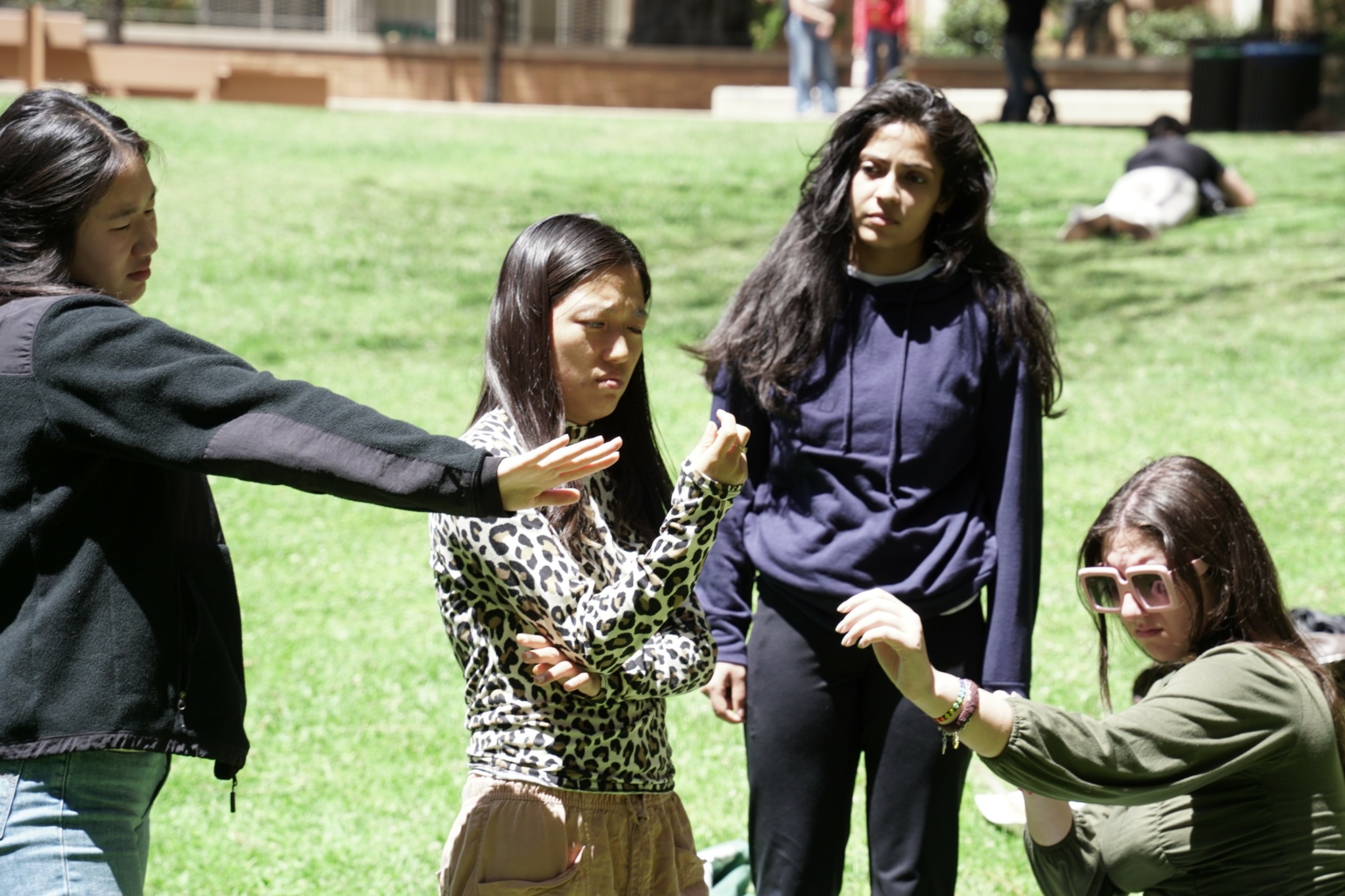
Yuwen, love having you share your insights with us. Before we ask you more questions, maybe you can take a moment to introduce yourself to our readers who might have missed our earlier conversations?
I’m currently completing my B.S. degrees in Theatre & Drama and Mathematics at the University of Wisconsin–Madison. I work as a director, playwright, and stage manager, and my artistic practice centers on multilingual, cross-cultural storytelling that bridges language, identity, and embodied expression. My recent directing credits include Almost, Maine, Musical Fanletter, and Her Rage. In addition to directing and writing, I have extensive experience in stage and technical management, having worked with organizations such as Madison Opera, University Opera, University Theatre, Aranya Theatre Festival, China Children’s Art Theatre, and Drum Tower West Theatre.
As a Chinese speaker studying and creating work in the U.S., I am passionate about creating Chinese story in the U.S. Something that I learn over time is that language is a powerful tool, and it conveys something much more than meaning itself. Pronounciation, grammar, how non-native use the language all affect how people percieve the story. I’ve done Chinese musical in America, experiment with different way of playing superscript and explore how they affect non-native speaker percieve the play.
I’ve become acutely aware of the ways language can both connect and divide. That awareness has led me to explore various modes of communication in my work: physical movement, imagery, voice, and music. I strive to build performances that transcend the limits of literal language and invite audiences into a shared emotional and visual experience. My background in mathematics and STEM gives me a unique edge in managing complex productions. I often design custom systems and tools—such as interpretation charts or software-assisted communication workflows—to streamline multilingual collaboration within teams. I bring both artistic sensitivity and organizational clarity to the table, especially when navigating intercultural creative environments.
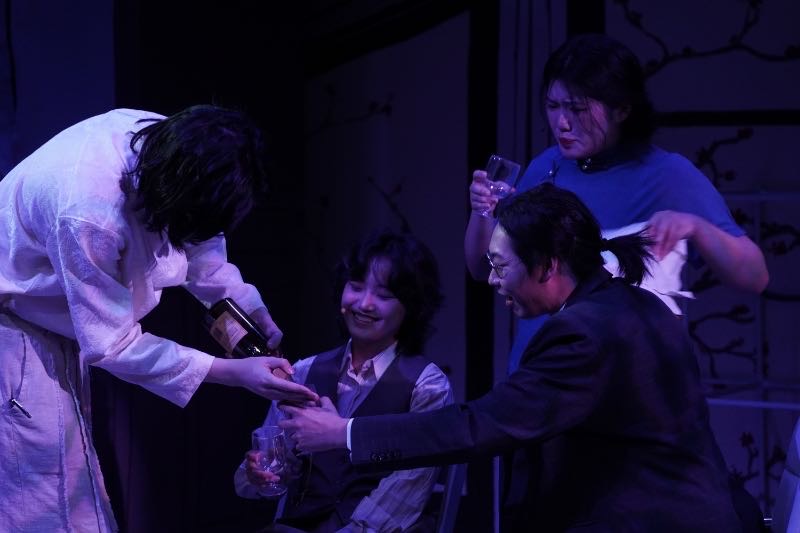
How can we best help foster a strong, supportive environment for artists and creatives?
I believe the best way society can support artists and creatives is by protecting freedom of expression, expanding access to arts education, and building more sustainable support systems—especially in places like my home country, China.
First, freedom of speech is absolutely essential for any creative ecosystem to thrive. Artists need the space to explore difficult, complex, or even controversial topics without fear of censorship or punishment. It will be hard for artists to fully express themselves or push creative boundaries if they could not speak freely. As an immigrant, this is a situation that I have deeply experienced.
Also, I think it’s important to create real, long-term support systems for artists—things like public funding, affordable studio spaces, grants, and fellowships. Without this kind of infrastructure, it’s incredibly difficult for creatives to sustain their work, especially if they’re not already commercially successful. Supporting the creative economy is not just about helping individuals—it’s about creating a society where imagination and innovation are valued and visible.
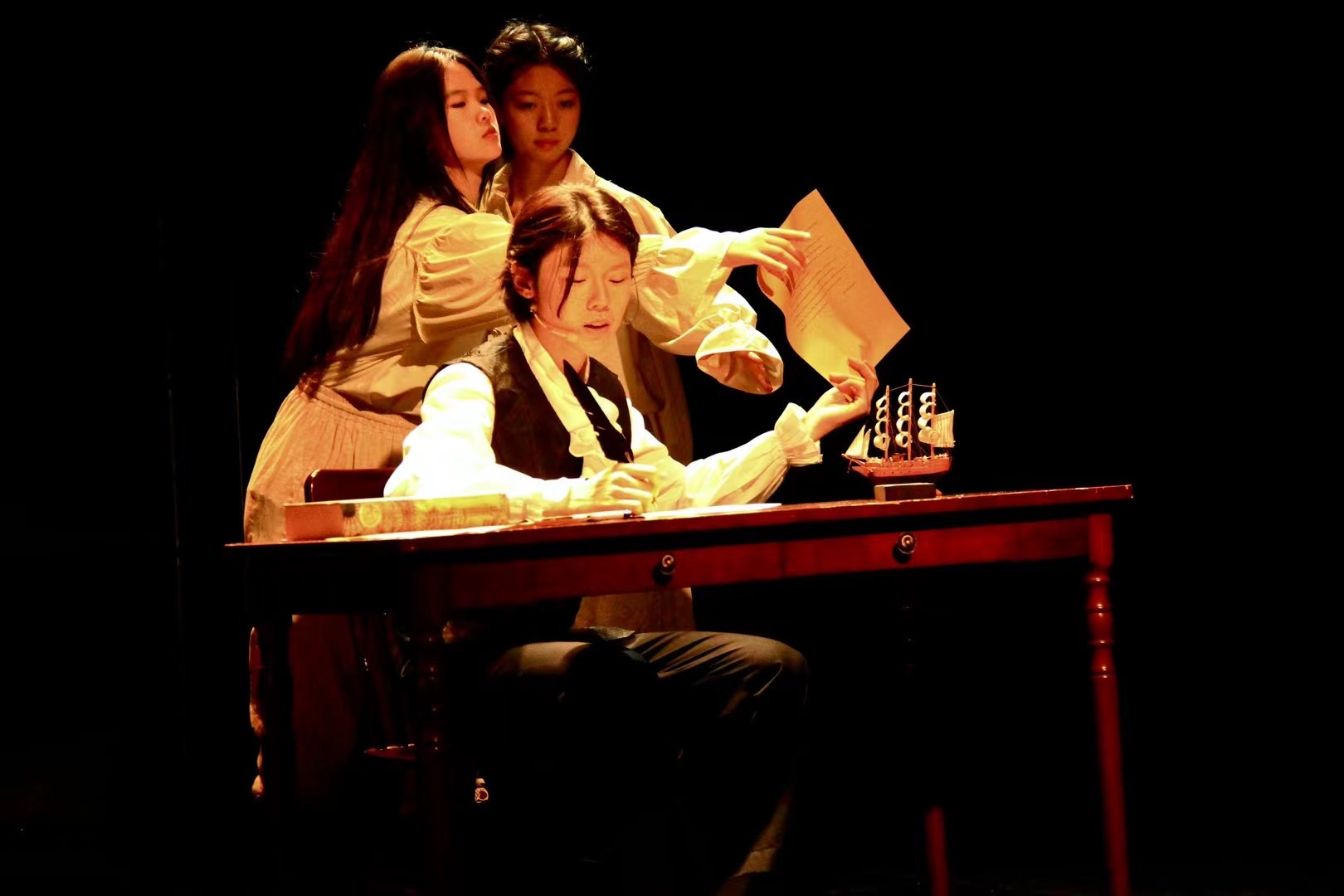
For you, what’s the most rewarding aspect of being a creative?
For me, the most rewarding part of being a theatre artist is creating a space where people can slow down, connect, and express the parts of themselves that are often silenced or overlooked.
As someone who spent his three years taking online courses during pandemic, as someone who is a foreigner studying in the U.S., and as someone who grew up with the internet, I felt isolated, always surrounded by indifferent noises. There is a need for me to explore ways of communication between me and the world.
During the rehearsal of Her Rage, we explore different way of expressing the fear, rage of an immigrant women. One of the actor climbed and tried to lift herself onto a tree branch, then she fell. The other spread out her limbs. They felt unsupported, streched, helpless. It is only through these explorations we could find a way to accuratedly express our feelings, and convey them to others.
Contact Info:
